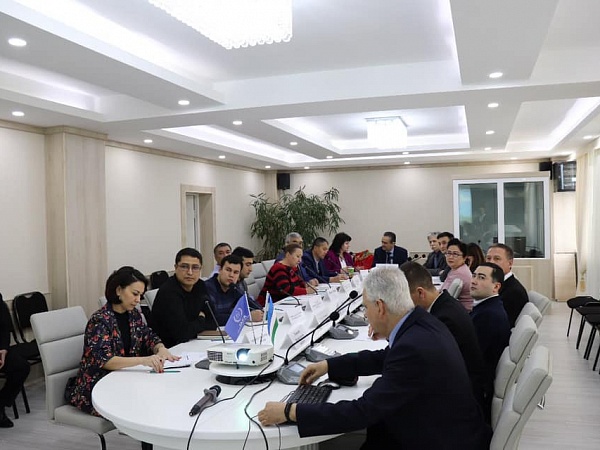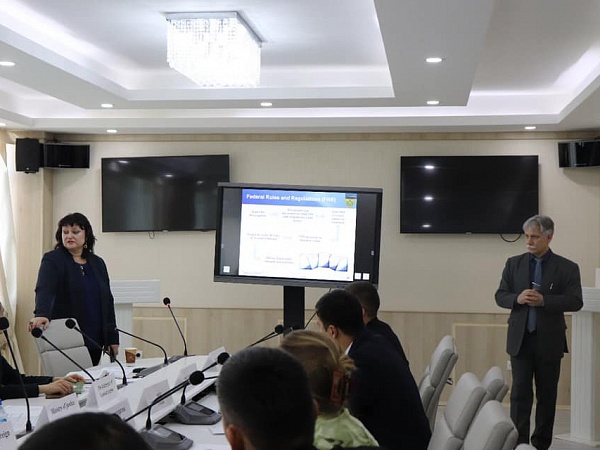IAEA expert mission to Uzbekistan
01 March 2020
// Industry News
An IAEA expert mission was conducted in the Republic of Uzbekistan in February to help Uzbekistan develop its second national report on fulfilling its obligations under the Joint Convention on the Safety of Spent Fuel Management and the Safety of Radioactive Waste Management.
The objectives of the Joint Convention are to maintain a high level of SNF and RW management safety by strengthening national measures and international cooperation; to ensure that all stages of SNF and RW management have effective means of protection against potential hazards; and to prevent accidents with radiological consequences and mitigate their consequences.
The Joint Convention contains chapters on the safety of SNF and RW management, as well as requirements for SNF and RW management facilities:
- general safety requirements;
- existing facilities; site selection; design and construction;
- safety assessment;
- operation.
To achieve its objectives, the Joint Convention requires each Contracting Party to:
- Submit a national report outlining the implementation of its obligations in advance;
- seek clarification on the other parties' national reports;
- Submit and discuss its national report at a Convention meeting;
- was willing to critique and comment on the peer review materials.
Angelika Khaperskaya, senior manager of the Project Office of Rosatom State Corporation and co-founder of the Women's Nuclear Industry Association Foundation, participated in the IAEA expert mission, presented a report on organization and preparation of the national report on implementation of the obligations under the Joint Convention on the Safety of Spent Fuel Management and on the Safety of Radioactive Waste Management, using the Russian Federation as an example, and also gave recommendations to the competent authorities on formation of the national report. "In the course of the mission, the policy and practice of SNF and RW management activities and safety regulation of these activities were considered. The Uzbek side, represented by authoritative bodies (State Committee on Industrial Safety, Uzatom Agency, Ministry of Internal Affairs, Ministry of Emergency Situations, Ministry of Health, State Security Service, State Customs Committee, State Committee on Ecology and Environmental Protection, Hydrometeorological Service Center, Academy of Sciences, Ministry of Finance, etc.) was given recommendations on further development of systems of SNF and RW management and recommendations on preparation of second Uzbek national report on implementation of obligations, in For reference: The national reports by the contracting party outline the measures taken to fulfill each of the obligations enshrined in the Convention. The reports should reflect: - policies for both SNF and RW management; - types of SNF and RW management activities; - The criteria used to define and classify RW. The report also includes: - A list of SNF and RW management facilities, their location, purpose, and essential characteristics; - inventories of SNF contained in the storage facility and that has been disposed of; - inventories of RW - in storage, which have been disposed of and which are the result of past practices; - A list of facilities in the process of decommissioning operation.




